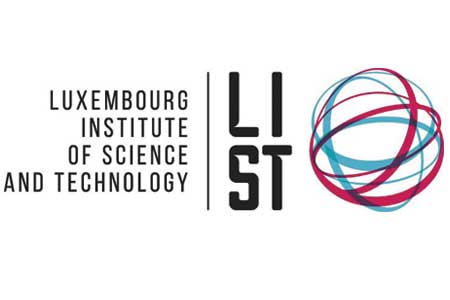Por cortesía de nuestro amigo y colaborador, doctor José Luis Pantoja PhD., publicamos esta oferta de beca para estudiar un doctorado en Ciencias del Suelo en el Luxemburgo Institute of Science and Technology.
LUXEMBOURG INSTITUTE OF SCIENCE AND TECHNOLOGY
Department of Environmental Research and Innovation
The successful candidate will join the Department of Environmental Research and Innovation (ERIN) in the Luxembourg Institute of Science and Technology (LIST), in Luxembourg. With a team of more than 170 scientists and engineers from life science, environmental science, and IT science. The department has the necessary interdisciplinary knowledge and skills to tackle major environmental challenges our society is facing today: climate change mitigation, ecosystem resilience, sustainable energy systems, efficient use of renewable resources, environmental pollution prevention and control.
The ERIN department has recently acquired a new “INTERREG-VA Grande Region-project” in agronomy and soil sciences: PERSEPHONE, which main objective is to position the biogas sector in the bio-economy and circular economy and, through this, to present the Greater Region (Luxembourg/Wallonia/Saarland/Lorraine) as an essential stakeholder in achieving the goals of the COP21 with regards to nutrient cycling and mitigation of greenhouse gas emissions.
This project will improve the economic value of the existing agricultural biomethanation units by ensuring a development that respects the living environment. By the nature of his actions, and mainly the monitoring of environmental impacts of the proposed fertilization modes, the project will also contribute to achieve a favorable conservation status of natural environments. PERSEPHONE is conducted by a partnership composed of scientists, actors in the field of biogas, and private companies involved in the fractionation of animal effluents and the development of innovative processes for nutrients recovery and algal farming.
In this context, the LIST is offering a fully paid Ph.D. position to study the impact of bio-methanation residues on the soil microbiological functioning, evidence for the N cycle under grassland conditions. The focus of this Ph.D. project is set on a detailed and accurate understanding of the nitrogen cycle under various modes of fertilization by studying the impact of different forms of N (organic, mineral, ammonium, nitrate) on crop production and leakages to the environment (soil, water, air). The work will mainly target the rhizosphere for a better management of the water resources quality in agricultural landscapes. Recent studies have demonstrated that agricultural practices related to the management of N inputs do not sufficiently take into account the exact role of microbiological functioning of the soil and its ability to deliver N in the optimal form for the plant. In the context of PERSEPHONE, the biogas residues could be envisaged as an essential way of managing both soil fertility and water quality by considering more precisely the natural functions that deliver the agro-ecosystems.
Description
The PERSEPHONE project aims to promote the use of biogas residues on agricultural land devoted to pastures. Digestates from biogas plants have all the agronomic characteristics to consider sustainable management of agricultural systems and to meet the environmental requirements of Directive 91/676 / EEC «nitrates». By their form (liquid) and composition (both organic and mineral), they help provide a ground form of preferential N for plants (NH4+, corresponding to 55 to 80% of total N in biogas digestate) and well retained by the soils thanks to a biologically stable carbon source. This is the crucial point for the management of N losses to water bodies.
The objective of the Ph.D. is to study the environmental value of the biogas residues for a sustainable agricultural approach in grassland. One of the main pillars of this Ph.D. project consists in the combination of qualitative (microbiology, geochemistry) and quantitative (hydrology) approaches to estimate the biogeochemical processes involved in the temporal dynamics of N assimilation in grassland soils under different fertilization conditions.
More specifically, the candidate will be in charge of:
. Making a state-of-the-art analysis relative to the general objectives of the project and the elaboration of the working hypotheses.
. Implementing and maintaining field experiments conducted on a lysimetric installation in line with the formulated hypotheses.
. Collecting water, plant, air and soil samples at various time scales, including high-frequency resolution.
. Preparing and analyzing solid and water samples for the determination of N forms and microbial communities/activities.
. Rigorously processing and analyzing collected data for publication in highly ranked international peer-reviewed journals.
. Being motivated by disseminating the results at international, regional and local levels.
Profile and competences
He/She holds a M.S. (or similar) degree in agronomy or environmental sciences with a focus on soil microbiology and/or environmental geochemistry. Also, any experience in monitoring and analyzing N or characterizing microbial communities in soil will be an asset. Advanced knowledge of English (both spoken and written) is required; good knowledge of French or German will be considered an asset. A class B driving license is required.
Application
Candidates interested in the above position can apply online on our website: http://www.list.lu/en/jobs/job-offer/erin-2016-060-plants-persephone/
The application file should include (in English):
. A CV or resume.
. Transcript of grades.
. A motivation letter.
. TOEFL and GRE scores are highly recommended.
. Three letters of recommendation with contact information.
Contact
Dr. Philippe Delfosse
GDEP – Place de l’Université 1 bte L0.03.31 à 1348 Louvain-la-Neuve
E-mail: philippe.delfosse@uclouvain.be
Phone: 010 47 90 84
—–
José L. Pantoja, PhD.
Plant Nutrition / Soil Management and Soil Fertility Specialist
CONSULTING, RESEARCH, AND WORKSHOPS
EcuadorUniversitario.Com
